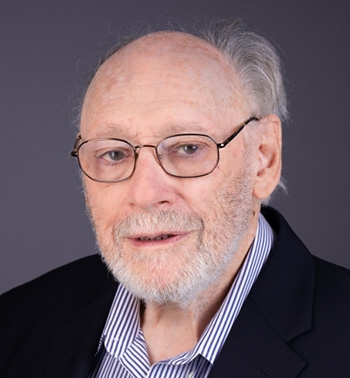Robert Baker, the William D. Williams Professor of Philosophy Emeritus, will receive the Lifetime Achievement Award from the American Society for Bioethics in Humanities.
The award is the society’s highest honor. It recognizes a distinguished individual for excellence in bioethics and/or the health humanities. It is given in recognition of longstanding achievement in bioethics and/or the health humanities.
Baker will be honored at ASBH’s annual conference in St. Louis, Mo., Sept. 18-21.
Baker joined Union in 1973. At the time, he was writing about patient’s rights, racism, sexism and the possibility that criminalizing drug addiction would lead to mass incarceration. Professional philosophers typically didn’t engage in these topics, but the College’s Philosophy Department was open to Baker’s interests. He retired from Union in 2019 after 47 years.
“As a philosophically-trained bioethicist and historian of medical ethics, my work is unique because it provides historical perspective often revealing unsavory aspects of healthcare that typically go unmentioned in the standard literature,” Baker said.
Baker is the founding director (emeritus) of the Clarkson University-Icahn-Mount Sinai Bioethics program. He earned a B.A. in social science from City College of New York and a Ph.D. in philosophy from the University of Minnesota, and was a post-doctoral fellow at Albany Medical College.
He co-founded an online/onsite bioethics masters’ program, founded ASBH’s affinity group on the history of medical ethics and served on ASBH committees that developed its code of ethics.
A four-time National Endowment for the Humanities awardee and a Hastings Center Fellow, Baker has authored or co-authored over 150 articles and a dozen books including the “American Medical Ethics Revolution” and “The Cambridge World History of Medical Ethics.” His most recent book, “Making Modern Medical Ethics: How African Americans, Anti-Nazis, Bureaucrats, Feminists, Veterans, and Whistleblowing Moralists Created Bioethics,” was published in February
Baker said he was surprised to receive the Lifetime honor from the ASBH because his publications were so far out of the mainstream of bioethical publications.
But, he said, “in the few hours since the award was announced I have been congratulated by former Union College and other students, old friends, former co-authors and many others. All unexpected and gratifying.”

